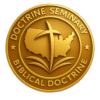|
Getting your Trinity Audio player ready...
|
Christian Education is Superior
As Christian students in this present world, we stand at the threshold of influencing worldly culture through academic excellence, ready to unleash our God-given potential through the power of disciplined, systematic, and authentic scholarly writing!
Writing a logical, well-researched paper isn’t just a task—it’s a journey of discovery, a chance to not only enhance your comprehension of a worthwhile topic but also to contribute to the world of knowledge through honest research, personal integrity, and academic precision.
Embrace God’s Guidance
Take time to begin your writing project in prayer, asking God to prepare your heart to undertake this task while guiding you into exciting new knowledge. As Proverbs 2:6 reminds us, “For the Lord giveth wisdom: out of his mouth cometh knowledge and understanding.” Proverbs 9:10, “The fear of the Lord is the beginning of wisdom: and the knowledge of the holy is understanding.”
Let’s seek wisdom in our work, igniting our passion for orchestrating papers that shine with clarity, harmonize concept, conduct credibility, and impact eternity using proven research, and peer-reviewed citations, all formatted flawlessly in APA style (https://apastyle.apa.org/) —without relying on AI to author or edit our work. This is our moment to take ownership of our scholarship with godly integrity!
A Systematic Approach
First, let’s apply a systematic approach that transforms ideas into compelling arguments. Start with a clear research question—your North Star, guiding every step with purpose. As Psalm 119:105 declares, “Thy word is a lamp unto my feet, and a light unto my path.” Let your research question be that lighthouse, keeping your paper focused. Dive into peer-reviewed sources—those gold-standard journals and books vetted by experts. Platforms like Google Scholar, PubMed, or your university’s library databases are your treasure troves. Seek verified statistics from reputable organizations like the World Health Organization or academic studies. These are the bedrock of your credibility. Colossians 3:23 instructs, “And whatsoever ye do, do it heartily, as to the Lord, and not unto men.” Avoid shortcuts and unverified claims—your paper deserves the weight of truth!
Outline Your Ideas
Next, organize your thoughts with a logical structure. Plan your introduction, literature review, methodology, findings, and conclusion. This isn’t just a formula; it’s a roadmap to clarity, reflecting the orderliness of God’s creation. As 1 Corinthians 14:40 urges, “Let all things be done decently and in order.” Each section builds on the last, weaving a narrative that’s easy to follow and hard to dispute. Let every claim rest on evidence. A statistic from a 2023 peer-reviewed study, like “65% of students improved grades with structured writing (Smith et al., 2023),” anchors your argument in authority, honoring the pursuit of truth. Proverbs 18:15 reminds us, “The heart of the prudent getteth knowledge; and the ear of the wise seeketh knowledge.” Seek that knowledge diligently!
The Finished Product
Now, let’s talk about APA style—your ticket to professional polish. Correct formatting shows respect for the academic community’s standards, reflecting the honor we owe to God’s gift of knowledge. Cite every source meticulously:
Author, A. A. (Year). Title of article. *Journal Name, volume*(issue), page range. DOI or URL.
Double-space your text, use 1-inch margins, and include a title page and reference list. This isn’t busywork—it’s a badge of rigor. A perfect citation, like “Johnson, R. T., & Lee, K. (2024). Effective study habits. *Journal of Education, 45*(3), 123-130. https://doi.org/10.1000/xyz123,” signals you’re a serious scholar. As Ecclesiastes 9:10 says, “Whatsoever thy hand findeth to do, do it with thy might.” Format with precision, for it glorifies your commitment to excellence.
Your Own Words
Why avoid AI authoring or editing? Because this is *your* voice, *your* intellect, a reflection of the unique gifts God has given you. Writing without AI forces you to wrestle with ideas, refine your thoughts, and grow as a thinker. Every sentence you craft, every source you verify, every citation you format is a victory of your mind. Mistakes? They’re part of the process. Learn from them, revise, and improve. James 1:4 encourages, “But let patience have her perfect work, that ye may be perfect and entire, wanting nothing.” That’s how you build skills that last a lifetime—through perseverance and authenticity.
Budget Your Time
So, let’s commit to the process! Start early, plan systematically, and dig into those peer-reviewed sources. Verify your data, structure your arguments, and format with APA precision. Write with passion, revise with purpose, and take pride in work that’s 100% yours. You’re not just writing a paper—you’re joining a community of scholars who value truth, rigor, and authenticity.
Inspire Others
Finally, proofread, then publish your finished product. Get it out there in print, text, email, online, or in publications. Write like this really matters. As Matthew 5:16 exhorts, “Let your light so shine before men, that they may see your good works, and glorify your Father which is in heaven.”
Let’s do this, not because it’s required, but because it’s who you are—dedicated, driven, and unstoppable in your pursuit of ethical scholarship. Go write that paper, and let it be a masterpiece of your own making, to the glory of God!

